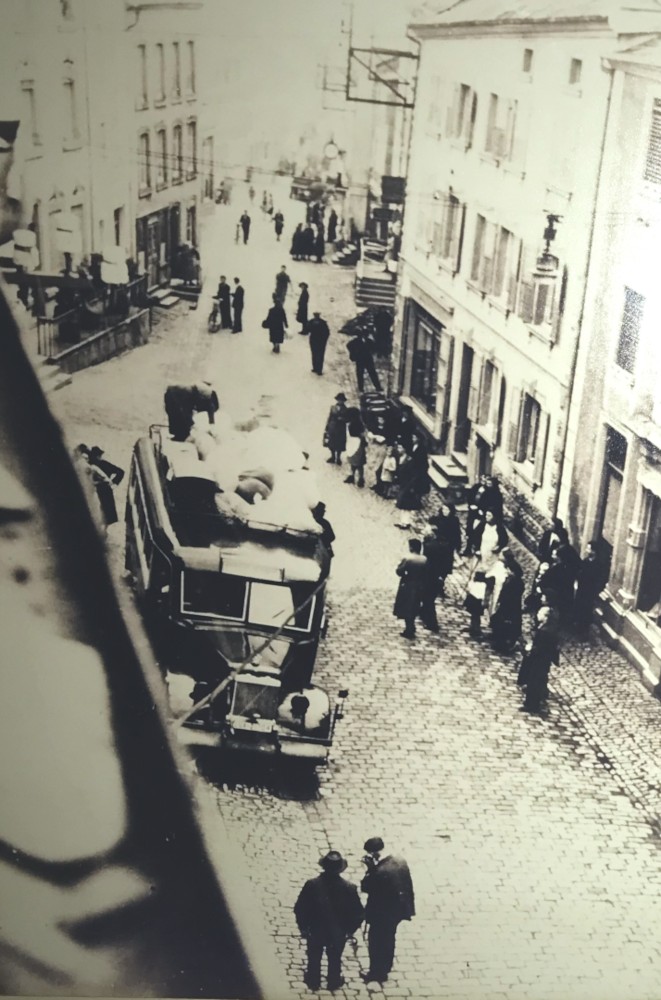The Gauleiter placed the country in a state of emergency and introduced the court martial. An official gazette laid down the full framework of repressive measures to ruthlessly crack down on deserters and their relatives with the death penalty, clan liability, confiscation of assets, closure of factory management and resettlement.
Arrested strikers were extradited to the Geheime Staatspolizei (GESTAPO) and sentenced to ’protective custody‘. This left them excluded from any appeal by judicial review or the right to legal counsel even in cases of mistreatment resulting in death.
The surveillance terror was brutally carried out by the Gestapo and the Security Service (SD) with their unrestricted power and widely networked informer service through which they restricted freedom of movement with curfews and bans on meetings.
The country was filled with great dismay for those having to wear the much hated uniform of the occupying power. More so, having to unwillingly sacrifice one's life for the criminal ideology of a foreign country.
The imposed conflict of conscience was immeasurable for the effected youth:
Should one place one's own life for the moral values of one's homeland higher than the fate of one's entire family, who would be exposed to the sadistic Nazi reprisals in the event of desertion?
Everyone had to make this terrible decision for themselves. Most of them followed the conscription to the Wehrmacht only with the thought of deserting during the first home leave after basic training. This firm intention gave them the strength to obey the orders for the time being and to uphold their loyalty to their homeland as a moral duty against the injustice of the Nazi regime.
The reality of the dreadful circumstances at the front, however, remained uncertain. Out of approximately 12,000 Luxembourgish conscripts, more than 3,500 decided to desert. A manhunt was initiated against all of them.
Of the majority who obeyed the conscription order, more than 2,800 were killed or missing in action at the front. More than 1,100 refractors managed to escape abroad, mostly to become active in the resistance there. In the beginning, several hundred managed to make their way to the Allies.
By way of court-martials hundreds were murdered at the front, in prisons or concentration camps. Many of those who were resettled were also never to see their beloved homeland again.
